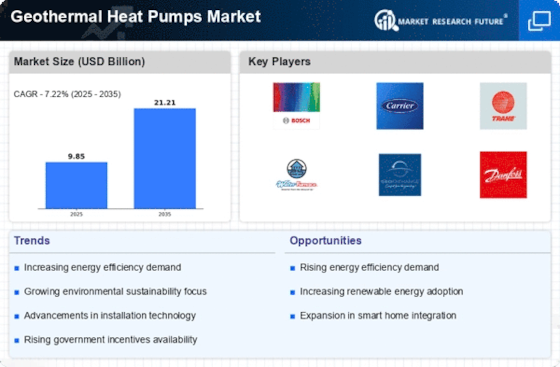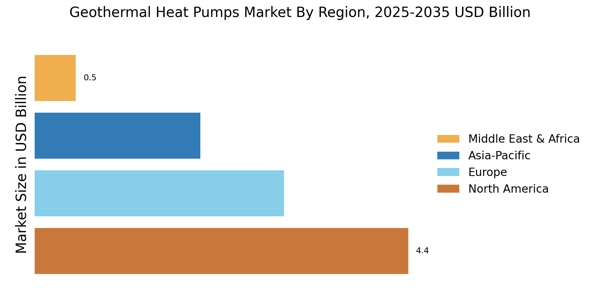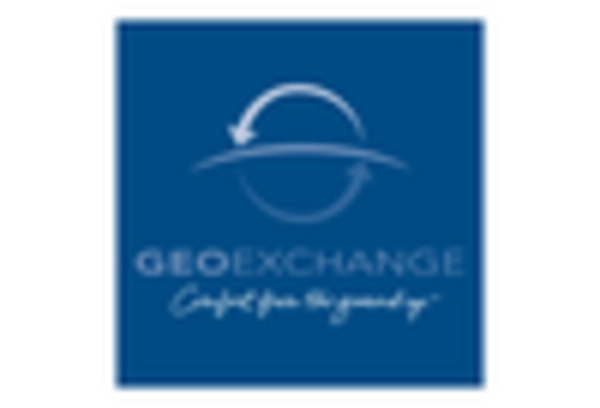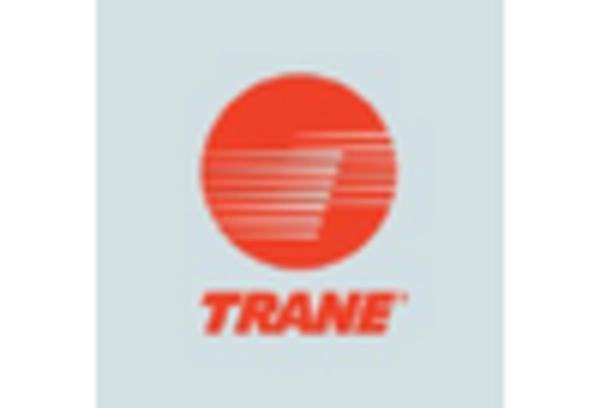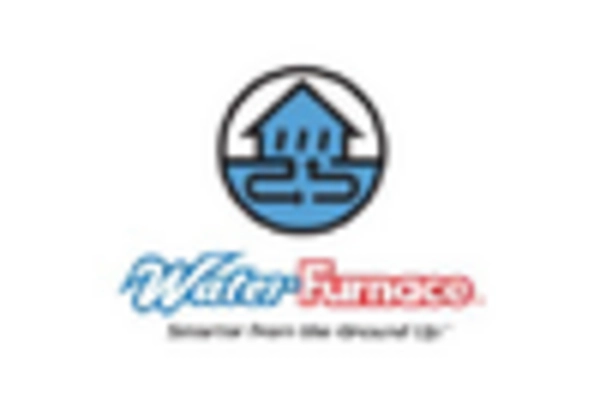Rising Energy Efficiency Standards
The Geothermal Heat Pumps Market is experiencing a notable shift due to increasing energy efficiency standards imposed by regulatory bodies. These standards are designed to reduce energy consumption and greenhouse gas emissions, thereby promoting sustainable practices. As a result, many countries are implementing stricter regulations that encourage the adoption of energy-efficient technologies, including geothermal heat pumps. This trend is likely to drive market growth, as consumers and businesses seek to comply with these regulations while also reducing operational costs. The market for geothermal heat pumps is projected to expand significantly, with estimates suggesting a compound annual growth rate of over 10% in the coming years, driven by these stringent energy efficiency mandates.
Government Incentives and Subsidies
The Geothermal Heat Pumps Market is significantly influenced by government incentives and subsidies aimed at promoting renewable energy technologies. Many governments are offering financial support to encourage the installation of geothermal heat pumps, which can lead to substantial cost savings for consumers. These incentives may include tax credits, rebates, and grants that lower the initial investment required for geothermal systems. As a result, the market is likely to see increased adoption rates, particularly among residential and commercial sectors. The availability of such financial assistance is expected to drive growth in the geothermal heat pumps market, with projections indicating a robust increase in installations as consumers take advantage of these favorable policies.
Environmental Sustainability Initiatives
The Geothermal Heat Pumps Market is increasingly influenced by global initiatives aimed at promoting environmental sustainability. Governments and organizations are recognizing the importance of reducing carbon footprints and transitioning to renewable energy sources. Geothermal heat pumps, which utilize the earth's natural heat, are seen as a viable solution to achieve these sustainability goals. The market is likely to benefit from heightened investments in renewable energy technologies, with geothermal systems being a focal point due to their low environmental impact. As awareness of climate change grows, the demand for geothermal heat pumps is expected to rise, potentially leading to a market expansion that aligns with global sustainability targets.
Technological Innovations in Geothermal Systems
The Geothermal Heat Pumps Market is witnessing a surge in technological innovations that enhance the efficiency and effectiveness of geothermal systems. Advances in drilling techniques, heat exchange technologies, and system design are making geothermal heat pumps more accessible and cost-effective for consumers. These innovations not only improve the performance of geothermal systems but also reduce installation and maintenance costs, making them a more attractive option for homeowners and businesses alike. As technology continues to evolve, the market is likely to see an increase in adoption rates, with projections indicating a potential doubling of installations over the next decade as consumers seek reliable and efficient heating and cooling solutions.
Increasing Demand for Renewable Energy Solutions
The Geothermal Heat Pumps Market is benefiting from a growing demand for renewable energy solutions as consumers and businesses seek alternatives to fossil fuels. This shift is driven by rising energy costs and a desire for energy independence. Geothermal heat pumps offer a sustainable and efficient way to heat and cool buildings, making them an appealing choice for environmentally conscious consumers. Market data suggests that the adoption of geothermal systems is on the rise, with many regions reporting significant increases in installations. This trend is expected to continue, as more individuals and organizations recognize the long-term cost savings and environmental benefits associated with geothermal heat pumps.


